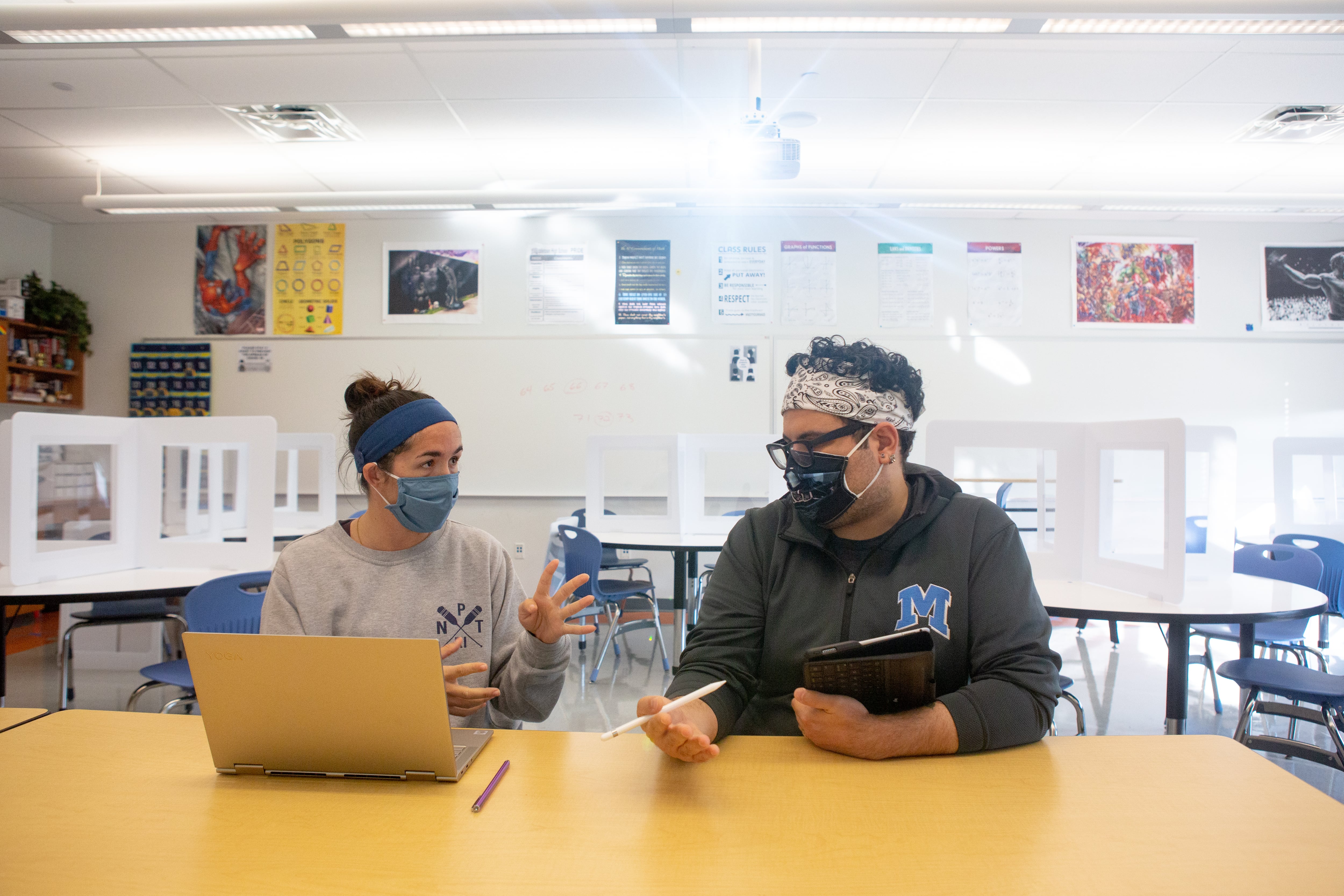Uncertified college students soon could find themselves leading Michigan classrooms and in charge of students’ academic progress for a full year.
The state House Education Committee is considering a bill allowing districts to hire not-yet-certified education majors as paid teachers with their own classrooms for up to one year. The bill aims to alleviate a severe teaching shortage that has crippled schools in Michigan and across the country, but some say it could do more harm than good.
“This is not a reasonable solution,” said Gail Richmond, director of teacher preparation programs at Michigan State University. “As a parent, I want to know that the teacher of my children has been through a program that has a particular set of expectations, offers a certain set of learning opportunities, and has a set of standards that they’ve met,” she said.
Education majors need that kind of structure too, Richmond said, calling the legislation a “lose-lose situation.”
Bill Sponsor Pamela Hornberger, who leads the committee, said her legislation provides one more tool in a toolbox that now also includes legislative authority for bus drivers, library aides, and other support staff to substitute teach with only a high school diploma. She acknowledged that hiring education majors may not work for every district, and it would be optional.
“We’re at the point where we’re voting to put anyone with a pulse and breathing in a classroom to sub,” the Chester Township Republican said during a committee hearing Tuesday. “We need to do something.”
The bill does not specify how far along students must be in teacher preparation programs to participate, but during testimony Tuesday Hornberger suggested that they would have had at least some teaching experience during their college coursework.
The Michigan Department of Education opposes the bill. Department spokesman Martin Ackley would not elaborate.
Rep. Lori Stone, a Democrat and former Macomb County teacher, said she feels “some hesitancy” about college students leading a classroom without real-time support and feedback from a certified teacher. Still, she said, the legislation could alleviate financial hardships for education majors, whose student teaching assignments are usually unpaid.
Hornberger said teacher preparation programs could restructure their programs to ensure education majors are prepared sooner to lead their own classrooms, and districts could establish mentorship programs to guide them.
None of that is specified in the bill, and that’s a problem, Richmond said in a phone interview Tuesday afternoon.
“I can imagine some version of this might work if it were carefully crafted, carefully designed, carefully assessed, and carefully overseen, but not if it doesn’t identify the kinds of necessary and powerful supports that developing educators need,” she said. That should include regular real-time feedback, co-teaching experiences, and day-to-day support of an experienced mentor, Richmond said, describing the support students typically receive during unpaid student teaching assignments.
Hornberger said during the hearing that she’s open to amending the legislation. If districts and universities work together, they can craft a model that provides good experience to student teachers while solving local teacher shortages for districts in crisis, she said. Universities might have to restructure their model for how student teaching is delivered, she said.
From South Carolina to Colorado, school systems are increasingly relying on uncertified instructors.
Petoskey Superintendent Chris Parker said he wouldn’t choose to have education majors act as teachers in his district, but said it could be an option for districts with a more severe teacher shortage.
“It’s nice to see the Legislature trying to help solve the current crisis,” he said, but “would you want a surgeon taking out your appendix who’s on a temporary certification but has binge watched the ‘ER’ television series and took a couple biology classes?’
Rep. Darrin Camilleri, Democrat from Brownstown Township, said the legislation could be impactful.
“This is a much bigger step than filling a teacher shortage. It’s re-evaluating what the concept of teacher education is,” Camilleri said.
The legislation could add administrative costs for the Michigan Department of Education, according to a House fiscal analysis. Those costs would likely be absorbed using existing staff, analysts said.
Education advocate Lou Glazer, president of Michigan Future, said it isn’t ideal to have uncertified instructors in charge of classrooms, but it’s a reasonable option during a severe teacher shortage. Michigan Future is a nonpartisan think tank focused on education’s role in bolstering the economy.
“There’s more demand for teachers than there is supply. There’s a real problem, and given this environment, we’re going to have to find alternatives,” Glazer said. He said a student in an education school program “sure seems a hell of a lot better” than a bus driver without any college credits.
State Superintendent Michael Rice has proposed a menu of other options to alleviate the teacher shortage. So far, the Legislature hasn’t considered them. They could cost between $300 million and $500 million over five years, he told lawmakers in a November letter.
Rice’s proposals include offering scholarships to education majors, extending loan forgiveness to current teachers, and better mentoring of new educators. He also wants support to ease restrictions on accepting teacher licenses from other states, to create grow-your-own programs that train support staff to become teachers, and to revive teacher preparation programs in the Upper Peninsula and lower Northern Peninsula.
Bridge Michigan staff writer Isabel Lohman contributed.





